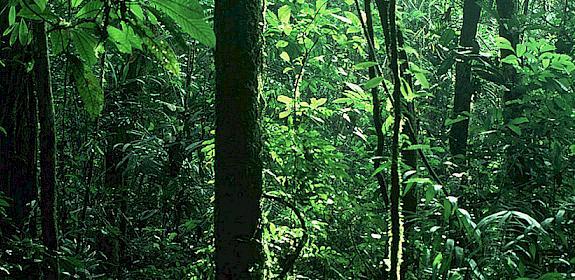Zoohackathon 3.0 generates winning ideas to end wildlife trafficking
18th November 2019, New Delhi, India—Zoohackathon, a two-day technology-driven challenge to help find solutions to curb wildlife trafficking, ended yesterday in New Delhi. Coders, wildlife enthusiasts, and designers participated in Zoohackathon 3.0 which was jointly organised by the U.S. Embassy in New Delhi, TRAFFIC, and WWF-India at the WWF-India Secretariat.
Team “Error: Error not Found” from University of Delhi were the winners of the event, while the Team “Kyros” from Indraprastha University were runners up.
“Error: Error not Found” developed a simple open-source, text-based application which enables users to raise alerts on any illegal wildlife trade activities taking place on digital channels. The tools also provide an opportunity to bring together various agencies and share sensitive information related to poaching and wildlife criminals.
Team “Kyros” developed an application that allows comparisons of available medicinal plant products for sale on e-commerce platforms with CITES-listed medicinal plant species to assess their legal status and send out email alerts of defaulters to enforcement agencies.
Overall, 16 teams comprising of 75 participants from various fields, including students, IT professionals, educators, and others, spent their weekend innovating, developing and presenting solutions to help end poaching and wildlife trafficking, as well as increasing awareness among consumers. The participants were also introduced to illegal wildlife trade issues in India and were simultaneously mentored on wildlife conservation, coding skills, and communications techniques.
The ideas were based on five problem statements, i.e. establishing a path for local communities to report illegal wildlife activities to appropriate authorities; using block chain technology for tracking supply of forest based products; tracking CITES-listed e-commerce in plants; avoiding compromise in counter- Wildlife Trafficking (CWT) Investigations; and tracking captive Indian Elephants.
At the end of two days, the teams presented their ideas and solutions before a panel of judges that included Ms. Isabella Detwiler, Deputy Minister Counselor Economic Environment, Science and Technology Affairs at the U.S. Embassy; Mr Jeffrey Watts, Energy Officer at the US. Embassy; Mr. Vinayak Godse Vice President of the Data Security Council of India (DSCI); Mr Anup Kumar Nayak, Member Secretary of the National Tiger Conservation Authority; Mr Yogendra K Srivastava, Blockchain Solution Architect at India Software Lab, IBM India Pvt Ltd and Dr Dipankar Ghose, Director of the Species and Landscape Program at WWF–India.
Ms. Tilotma Varma, Additional Director of the Wildlife Crime Control Bureau (WCCB), attended the opening session of Zoohackathon 3.0 and spoke on the illegal wildlife trade in India, the challenges of combating trafficking, and the role the general public, especially youth, can play in helping to address this threat. She encouraged the participants to go beyond Zoohackathon and continue to support causes that help conserve and protect India’s wildlife.
U.S. Embassy Minister Counselor J. Robert Garverick said the Zoohackathon is helping connect young people around the world to wildlife conservation issues, and is a vital tool to create awareness about the scale of illegal trade in wildlife and the ways technology can help in wildlife conservation.
India's internet usage has registered an exponential growth in recent times, and with that growth, illegal wildlife trade over virtual space has also expanded. It is therefore essential to innovate and develop new strategies that will help to end wildlife trafficking online. We congratulate the winners of Zoohackathon 3.0 and also all the participants who came forward to join us in this fight against wildlife crime.
Dr. Saket Badola, Director of TRAFFIC's India Office
“We are hopeful that some of the solutions from the Zoohackathon can be adapted to real time strategies for fighting wildlife crime in India”, Dr. Badola added.
Mr Ravi Singh, Secretary General and CEO of WWF-India said, “Zoohackathon is a unique challenge that helps find technology-based solutions to the growing threat from illegal wildlife trade. The programme encourages young citizens to understand broader issues of the subject and be a part of the solution. Zoohackathon is also an opportunity to reach out and raise awareness about the need to counter wildlife crime”.
Zoohackathon was also held for the first time in Kolkata this year on the 9-10th November 2019 and was organised by U.S. Consulate General in Kolkata, WWF-India, TRAFFIC, and the Bengal Chamber of Commerce and Industry (BCC&I).
The winners of Kolkata and Delhi will compete for the global prize along with the winning teams from all host countries. A panel of judges at the global level will choose the international winner based on the presentation and codes that the teams will upload for the global competition. Last year’s New Delhi winners won second place in the global competition.





